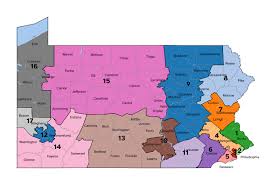The Art of Grilling: A Culinary Delight
Grilling is more than just a method of cooking food; it’s a culinary experience that brings people together and creates delicious, flavorful dishes. Whether you’re a seasoned grill master or a novice cook, the allure of the grill is undeniable.
There’s something primal and satisfying about cooking over an open flame, watching as the heat transforms raw ingredients into mouthwatering meals. The sizzle of meat hitting the hot grates, the aroma of wood smoke wafting through the air – these are the sensations that make grilling so special.
From juicy burgers and perfectly seared steaks to charred vegetables and caramelized fruits, the possibilities on the grill are endless. The intense heat creates a unique flavor profile that simply can’t be replicated by any other cooking method.
Grilling is not just about cooking food; it’s about creating memories. It’s about gathering with friends and family on warm summer evenings, sharing stories and laughter while enjoying delicious grilled fare. Whether it’s a backyard barbecue, a tailgate party, or a picnic in the park, grilling has a way of bringing people together.
But grilling isn’t just reserved for meat lovers. Vegetarians and vegans can also enjoy the delights of grilled cuisine with an array of plant-based options like grilled portobello mushrooms, tofu skewers, or charred corn on the cob.
So fire up your grill, gather your loved ones around, and embark on a culinary adventure that will tantalize your taste buds and create lasting memories. Whether you prefer charcoal or gas, marinating or dry rubs, slow smoking or high-heat searing – there’s no wrong way to grill. The only rule is to enjoy every moment of this flavorful journey.
Essential Grilling Guide: Maintenance, Techniques, and Flavor Enhancements – Your Top 7 BBQ Questions Answered
- How do I properly clean my grill?
- What type of fuel is best for grilling – charcoal or gas?
- How can I prevent flare-ups while grilling?
- What are the recommended cooking temperatures for different types of meat on the grill?
- How do I know when my meat is cooked to the right doneness on the grill?
- What are some popular marinades or rubs for enhancing flavor when grilling?
- Can you provide tips for maintaining and prolonging the life of my grill?
How do I properly clean my grill?
Properly cleaning your grill is essential to maintain its performance and ensure the longevity of your cooking equipment. Start by preheating the grill to burn off any food residue, then use a wire brush to scrub the grates thoroughly. For gas grills, remove the grates and clean the burner tubes with a brush to prevent clogs. Wipe down the exterior with soapy water and a sponge, making sure to rinse off any soap residue. Regularly empty the grease trap and ash catcher to prevent buildup. Lastly, cover your grill when not in use to protect it from the elements. By following these cleaning steps regularly, you’ll keep your grill in top condition for many more delicious meals to come.
What type of fuel is best for grilling – charcoal or gas?
When it comes to the age-old debate of charcoal versus gas as the preferred fuel for grilling, the answer ultimately depends on personal preference and desired cooking experience. Charcoal grills are renowned for imparting a distinct smoky flavor to food, perfect for those seeking that authentic barbecue taste. On the other hand, gas grills offer convenience and quick heating, ideal for those looking for a hassle-free cooking process. Both fuel types have their unique advantages, so choosing between charcoal and gas boils down to individual priorities such as flavor intensity, ease of use, and time efficiency. Whichever fuel you choose, what truly matters is the joy of gathering around the grill with loved ones and savoring deliciously grilled meals together.
How can I prevent flare-ups while grilling?
Preventing flare-ups while grilling is a common concern for many outdoor cooking enthusiasts. To minimize the risk of flare-ups, it’s essential to keep your grill clean by regularly removing excess grease and food residue that can ignite and cause flames. Additionally, using leaner cuts of meat and trimming excess fat before grilling can help reduce flare-ups. Opting for indirect heat cooking methods, such as using a two-zone fire or raising the grill grate height, can also help prevent excessive flames. Finally, being attentive and ready to adjust the heat levels as needed during grilling can further control flare-ups and ensure a more enjoyable cooking experience.
What are the recommended cooking temperatures for different types of meat on the grill?
When it comes to grilling different types of meat, knowing the recommended cooking temperatures is essential for achieving perfect results. Each type of meat has its ideal internal temperature to ensure both safety and optimal taste. For example, beef steaks are often best cooked to medium-rare at around 130-135°F for a tender and juicy texture, while poultry like chicken should reach an internal temperature of 165°F to ensure it’s thoroughly cooked. Pork chops benefit from reaching an internal temperature of 145°F for a balance of tenderness and flavor. By following these recommended cooking temperatures, you can confidently grill a variety of meats to perfection every time.
How do I know when my meat is cooked to the right doneness on the grill?
Determining the perfect doneness of meat on the grill is a common concern for many home cooks and grill enthusiasts. One reliable method to gauge the doneness of meat is by using a meat thermometer. Insert the thermometer into the thickest part of the meat without touching bone or fat to get an accurate reading. Different types of meat have specific internal temperature guidelines for various levels of doneness, such as rare, medium-rare, medium, and well-done. Additionally, you can also employ visual cues like color and texture to assess if your meat is cooked to your desired level. With practice and experience, mastering the art of grilling meat to perfection becomes second nature.
What are some popular marinades or rubs for enhancing flavor when grilling?
When it comes to enhancing the flavor of grilled dishes, marinades and rubs play a crucial role in elevating the taste profile of meats and vegetables. Popular marinades often include a combination of ingredients like soy sauce, garlic, citrus juices, herbs, and spices, which help tenderize the meat while infusing it with savory flavors. On the other hand, rubs consist of dry mixtures of herbs, spices, salt, sugar, and other seasonings that are generously massaged onto the surface of the food before grilling to create a flavorful crust. Whether you prefer a tangy barbecue marinade for ribs or a spicy dry rub for chicken wings, experimenting with different flavor combinations can truly take your grilling experience to the next level.
Can you provide tips for maintaining and prolonging the life of my grill?
To ensure your grill stays in top condition and extends its lifespan, here are some essential tips to consider. Firstly, regular cleaning is key to preventing grease buildup and corrosion. After each use, scrub the grates and interior with a grill brush and warm, soapy water. Secondly, inspect the burners, hoses, and connections for any signs of wear or blockages, ensuring proper gas flow and safety. Additionally, cover your grill when not in use to shield it from the elements and reduce exposure to rust-causing moisture. Lastly, schedule routine maintenance checks and follow the manufacturer’s guidelines for optimal performance. By incorporating these practices into your grill care routine, you can enjoy delicious grilled meals for years to come while safeguarding your investment in outdoor cooking equipment.









